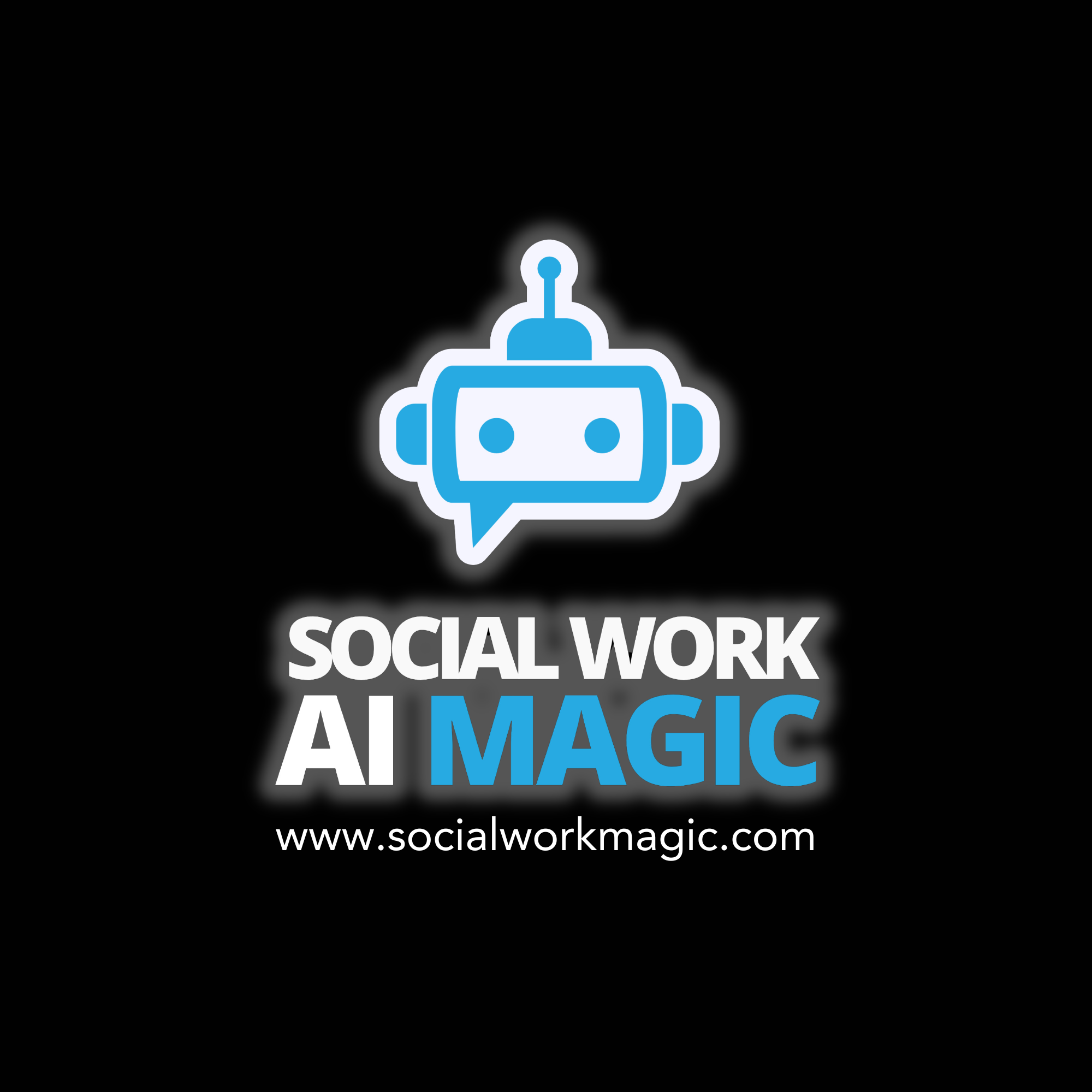The Changing Face of Social Work with AI—It’s About Time
- Social Work AI Magic

- Feb 24, 2025
- 3 min read
Social work is overdue for a technology upgrade...like 30 years overdue. In a field where burnout can be the norm and paperwork can take up more time than actual client care, AI may just be the answer to some social workers' LITERAL prayers. The eventual goal of integrating AI is not to replace social workers—it’s to make their jobs easier, more efficient, and (finally) less bogged down by endless forms and administrative tasks.
How Social Work AI is Transforming the Landscape
Two years ago when I started posting about AI, I talked a lot about opening up to the possibility of AI becoming part of the work. Now, AI in social work is not just some futuristic, hypothetical concept—it’s already here. It can help social workers analyze mountains of data, automate routine tasks, and even spot patterns that might indicate a client is at risk. We are not too far away from having a system that flags concerns before they become crises (if we're not there already). That’s not just convenient—it can be lifesaving.

Now, let’s talk about caseloads. In a 2021 survey by the National Association of Social Workers (NASW), 65% of social workers said they were overwhelmed. That’s not surprising to any of us. The paperwork alone can make this job feel impossible. AI can help manage, or provide some "shortcuts" for the often oppressive and demoralizing administrative work in the field, freeing up social workers to do what they actually signed up for—helping people.

AI-Powered Communication—More Support, Less Delay
Social work is all about communication, but keeping up with calls, emails, and client check-ins can be overwhelming. This is where we can start to consider tools like AI-driven chatbots and messaging platforms. These tools can handle FAQs, send appointment reminders, and even gather feedback—so social workers can focus on the cases that actually need their attention. "Agentic" AI tools (AI that goes beyond providing information and actually DOES things...like returning emails written in your own voice, responding to voicemails customized to each client, etc.) is something that I will discuss in future posts, but many agree that agentic AI is the next big thing. As Social Workers, we need to be aware and prepared for this new wave of AI.
A study in the Social Work Journal found that clients who received timely responses through digital platforms felt more satisfied with their services. From this we can surmise that AI does not just speed things up—it helps build trust. In this kind of work, we'll take all of the trust and rapport we can get to help build relationships, remove potential barriers, and to streamline the 1:1 interactions we have with our clients.

The Challenge (and Opportunity) of AI in Social Work
In the past two years I've talked a lot about the concerns that many of our colleagues have/have had with privacy, ethics, bias, etc...and thanks to conversations like these, most Social Workers today understand that these are not necessarily "deal-breakers". AI systems like the Social Work Magic AI Tool are already addressing these issues, offering training and support to help social workers integrate AI responsibly.
The key here is to make sure that social workers are equipped to use AI the right way, maximizing its benefits while keeping client confidentiality, potential biases of AI systems, and ethical approached to integration and implementation in mind. With the right tools and training, AI can be...or rather, IS, a powerful ally, more so than a threat.
The Future of Social Work
Like it or not, AI is becoming a major factor in the present and future of social work. The more we are open to it, learn how to use it, and make it a part of our practice, the more we can improve case management, resource allocation, and overall client outcomes. But beyond just adopting new technology, we need to push for policies that support these innovations, because those who we serve and who rely on social services deserve the best tools available.
Final Thoughts
At the end of the day, AI can be a tremendous help to our daily work, contributing to our own well being and ability to fight off the burnout that can be so tragically common. The future of social work is about leveraging the tools available to us and making sure that the human centered work we do is not buried under a mountain of paperwork that we can never catch up with. Instead, the future is about the work being done by professionals empowered by AI to make the work more efficient and effective.
So, the real question is: Are you ready to use AI to make social work better? Because it’s already here—and it’s not slowing down.




Comments